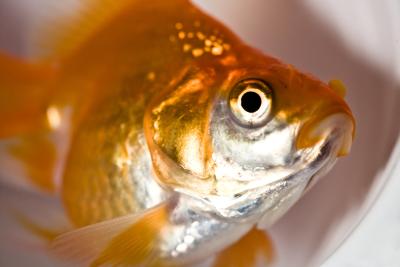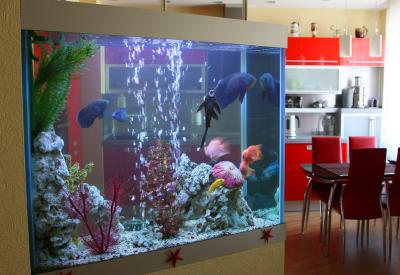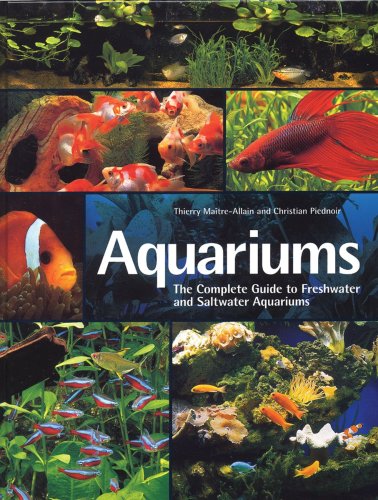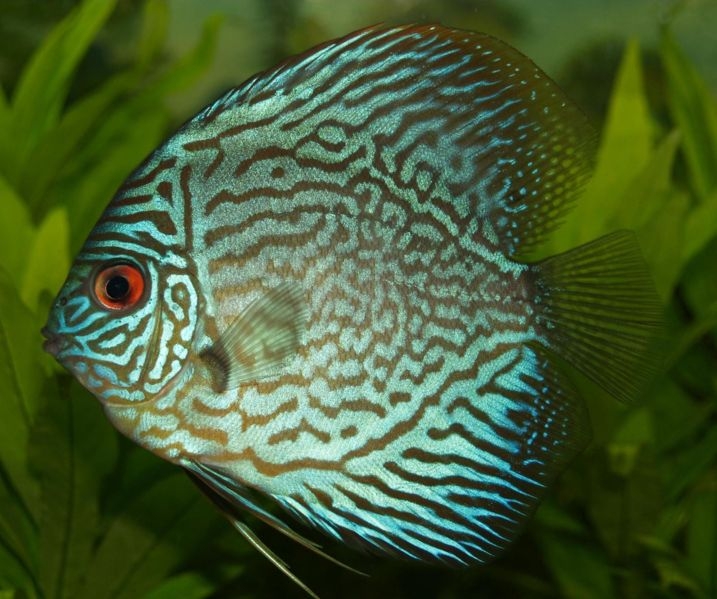
How to Identify and Remove Fish Tank Odor. Imagine setting up your new tank only to suffer after the first week with an intolerable odor! Fish tank odors are usually indicative of an underlying problem, once you identify the problem you can work on removing it.
DETERMINE THE CAUSE - Over feeding, overpopulation, and dead matter are big stink-makers. Make sure you are only feeding your fish as much as they will eat in a few minutes. If you see food floating to the bottom, you are feeding too much. The typical rule of fish keeping is one inch of fish per one gallon of water, if you are exceeding this number that may be your stink-source. Too many fish make too much poop. Too much poop smells. Try to out source some of your fish to friends or neighbors, or get another tank to reduce the population of your stinky tank. Dead matter will cause a foul smell from your tank so check around your decorations and in your gravel for debris build up.
KEEP YOUR TANK CLEAN, NOT STERILE. Fish tanks are like little rainforests. Everything can be so well-balanced that it can often take care of itself but it takes a lot of patience to get to that point. Make sure you are cleaning your tank but not making it spotless. When you clean your gravel, use a vacuum siphon to remove debris and 25% of the water. Change your filters often to keep smell down, if you notice your filters are covered in algae and debris after only a short while, you may need to think about purchasing a more powerful filter.
TAKE YOUR TANK OFF DRUGS - Sometimes we get so excited about being able to control algae or stress in our tanks that we over-medicate our aquariums. If you have a smell coming from your tank, evaluate what kind of chemicals you are adding to the water. A dechlorinator is perhaps the only necessary water treatment. Have your water tested at your local pet store to check the ammonia, nitrate, nitrite, and Ph levels. Ask for natural ways to keep them in balance. Like I mentioned, fish tanks can be a self-contained ecosystem if given time and care.
 How to Painlessly Kill a Fish
How to Painlessly Kill a Fish
How to P
How to Painlessly Kill a Fish
How to Painlessly Kill a Fish
How to P
 List of Aggressive Tropical Freshwater Fish
List of Aggressive Tropical Freshwater Fish
List of Aggressive Tropical Freshwater Fish
List of Aggressive Tropical Freshwater Fish
 9 Common Mistakes of Freshwater Fish Owners
Keeping fish in an aquarium
9 Common Mistakes of Freshwater Fish Owners
Keeping fish in an aquarium
 What Are Some Fish for an Outdoor Fish Pond?
What Are Some Fish for an Outdoor Fish Pond?
What Are Some Fish for an Outdoor Fish Pond?
What Are Some Fish for an Outdoor Fish Pond?
 What to Do About Bully Fish in an Aquarium?
What to Do About Bully Fish in an Aquarium?
What to Do About Bully Fish in an Aquarium?
What to Do About Bully Fish in an Aquarium?
Copyright © 2005-2016 Pet Information All Rights Reserved
Contact us: www162date@outlook.com